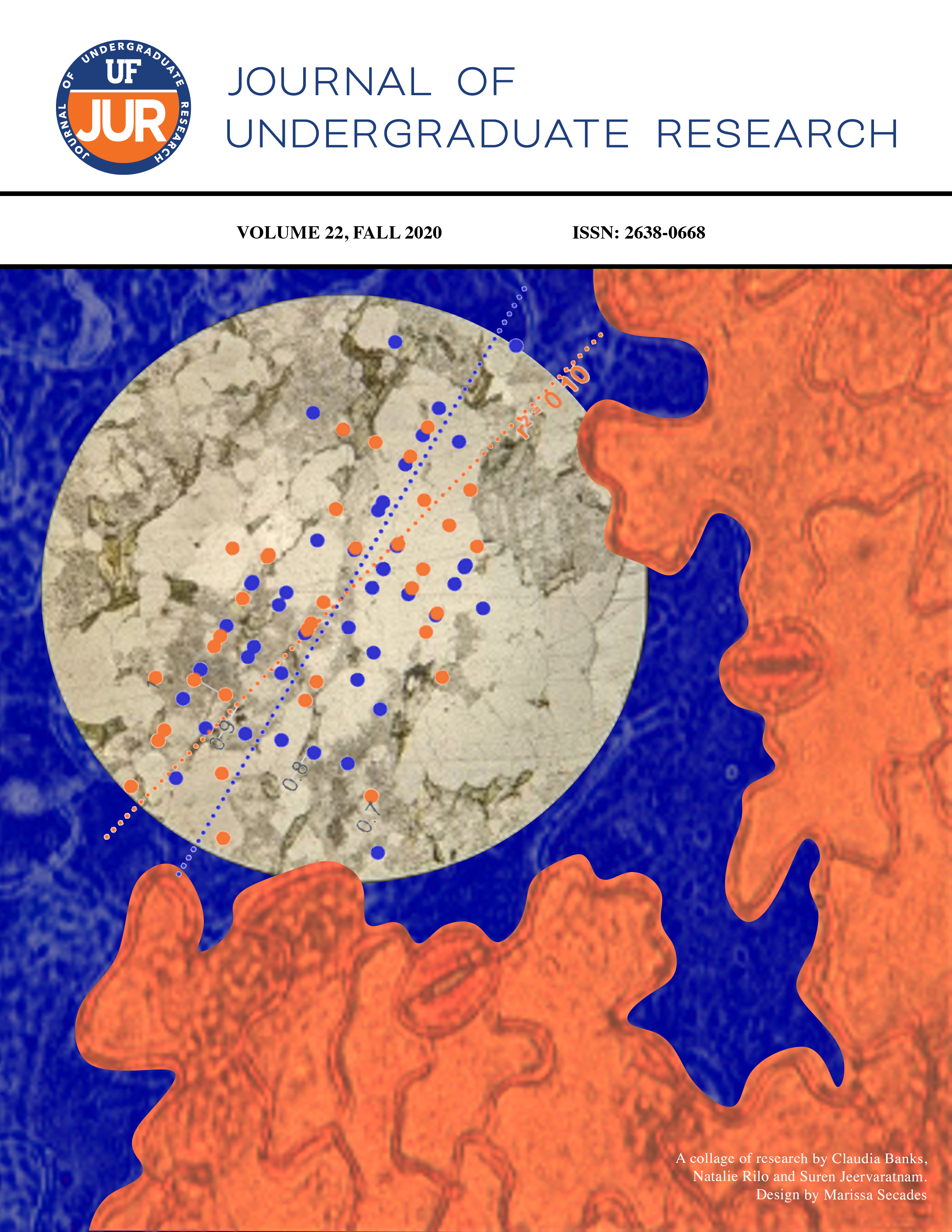The Effects of Parenting Style on Emerging Adulthood Emotional Self-Regulation and Identity Development
DOI:
https://doi.org/10.32473/ufjur.v22i0.121824Keywords:
parenting profiles, emerging adulthood, identity development, emotional self-regulationAbstract
The purpose of this research is to examine how parenting profiles, identity development, and emotional self-regulation may relate to one another in emerging adulthood utilizing a person-centered approach. The data being used for this study was from the Multi-Site University Study of Identity and Culture (MUSIC), which was collected using a cross-sectional online survey. The data consists of 3,775 students of which 61.9% were White and 69.9% were females ages 18-29. A hierarchical cluster analysis was performed for all participants using mother and father psychological control and nurturance to identify the parenting profiles. A four-cluster solution was most parsimonious and consistent after evaluating the agglomeration table and plots. Clusters were finalized using k-means cluster analysis; differences were tested through an analysis of variance (ANOVA) with Games-Howell post hoc testing. Parental Nurturance has high nurturance and low levels of psychological control from both parents. Parental Repression has high levels of psychological control and low levels of nurturance from both parents. Parental Equivocation has high levels of both parental nurturance and psychological control. Maternal Mitigation has high levels of maternal nurturance and paternal psychological control, and low levels of maternal psychological control and paternal nurturance. Parental Nurturance had the highest levels of depth and breadth of exploration, identification with commitment and commitment making, and use of reappraisal. The Maternal Mitigation profile was similar in outcomes. The Parental Equivocation and Parental Repression profiles were significantly lower on identity commitment and reappraisal and significantly higher on ruminative exploration and suppression.
Metrics
Downloads
Published
Issue
Section
License
Some journals stipulate that submitted articles cannot be under consideration for publication or published in another journal. The student-author and mentor have the option of determining which journal the paper will be submitted to first. UF JUR accepts papers that have been published in other journals or might be published in the future. It is the responsibility of the student-author and mentor to determine whether another journal will accept a paper that has been published in UF JUR.

